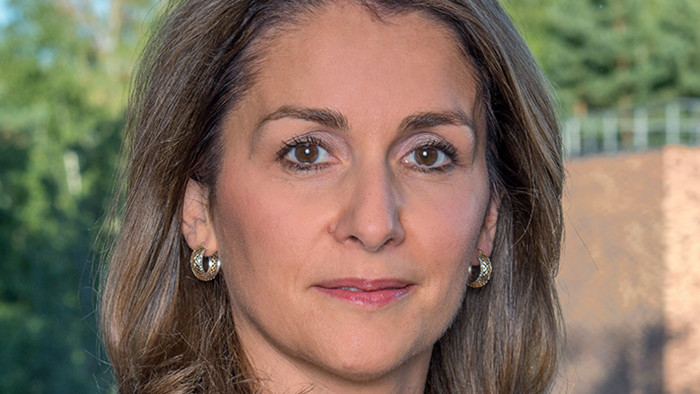Women at Business School – Laurence Capron, professor

Simply sign up to the Business education myFT Digest -- delivered directly to your inbox.
Laurence Capron is the professor of partnership and active ownership at Insead and director of the school’s executive education M&A and corporate strategy programme. She is particularly focused on how corporations combine organic growth with acquisitive growth and directed the Insead-Wharton alliance from 2007-2010.
Prof Capron joined Insead in 1997 after earning her PhD in strategy from HEC Paris and working at the University of Western Ontario in Canada. She has also been visiting faculty at Kellogg School of Management at Northwestern University, Wharton and MIT Sloan School of Management in the US. She sits on the editorial board of the Strategic Management Journal and is a member of the European Network of Women in Leadership.
In her spare time, Prof Capron enjoys hiking.
1. When did you know you wanted to teach?
I embarked on the PhD programme on the spur of the moment following the recommendation of a strategy professor. I think that I would also have enjoyed other careers in managerial positions.
2. Do you have a teaching routine?
For an 8:30am class, I wake up at 5am, reach the office at 6:30am and review my materials and the responses of the students to the session’s online survey. I then call my children before they leave for school and head to the classroom at least 30 mins before class starts. During class, I use a mix of case, lecture, group work, videos and simulation, trying to vary the rhythm of the class as much as I can.
3. What is the strangest thing you have ever done when teaching?
Once, at the end of my MBA course, one student stood up and offered me a rose. It was such a nice gesture that I hugged him while thanking him. Then another student stood up with a rose and another. Everybody had come with a rose! Since I had started that way, I felt compelled to hug every one of my 90 students, who lined up one after the other. It was certainly a strange experience!
4. What would you do if you were dean for the day?
I would ask faculty to make a very short presentation to the whole school about their work. It could be a key research idea, an amazing case study that they teach, or anything they want to discuss.
5. What is the best piece of advice given to you by a teacher?
Your students don’t care what you know unless they know that you care.
6. What academic achievement are you most proud of?
I am proud of having reached out to a broader managerial audience in my recent book Build, Borrow or Buy: Solving the Growth Dilemma, in collaboration with Will Mitchell from the University of Toronto and Duke University Fuqua School of Business. This book is the result of 20 years of research and teaching about M & As and corporate strategy.
7. What is your biggest lesson learnt?
Keep the ball rolling – in academia, we have a tendency to be perfectionists and to procrastinate until we can write the “perfect” article or book. We need to stay humble and, while recognising the shortcomings of each paper that we write, we must keep the ball rolling. Maintaining the momentum through repetition ultimately leads to improvements and to work that will impact business practices and people’s lives.
8. How do you deal with male-dominated environments?
It wasn’t easy at first, especially with some older misogynistic colleagues. Even though the environment is still heavily male dominated, attitudes have changed and I have also become more self confident. Still, I miss the bonds that I had forged with the female colleagues from my cohort who, unfortunately, have almost all left because of dual career or other issues. Not so much I can do about it . . .
9. What advice would you give to women in business?
Don’t be shy about asking for more. More responsibilities, more rewards, more mentoring and more training. I am always disappointed to have so few women in my executive education programme, for example.
10. What is the last book you read?
How Children Succeed by Paul Tough. I enjoyed reading the richness of teaching experiences in communities plagued by poverty, violence, low access to education. It provides a stark contrast with my business school environment.
Comments